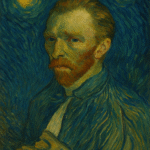Premchand: The Timeless Hero of Hindi Literature
The Voice of the People
Munshi Premchand (1880–1936) wasn’t just a storyteller—he was the voice of a restless, struggling India. Born Dhanpat Rai Srivastava in Lamhi village near Varanasi, Premchand wrote in Urdu and later in Hindi. His stories captured not just characters, but entire communities; not just events, but the emotional geography of everyday people.
Stories that Weren’t Just Stories
At a time when much of Hindi and Urdu writing was poetic or romantic, Premchand turned to realism. His characters were not kings and warriors, but farmers, widows, schoolteachers, clerks, debtors, and freedom fighters.
His world was filled with suffering—but never without dignity.
Some of his most loved works include:
Godaan (The Gift of a Cow)
Premchand’s final and most celebrated novel, Godaan captures the soul of rural India. The story follows Hori, a poor farmer whose longing to own a cow becomes symbolic of dignity, struggle, and systemic injustice. Through caste divisions, feudal exploitation, and economic despair, Godaan speaks of the impossible choices the poor must make to survive. It remains a masterpiece of Hindi realism.
Kafan (The Shroud)
This short story is perhaps Premchand’s most haunting work. It tells the tale of a father (Ghisu)and son (Madhav) who, after the death of Madhav’s pregnant wife, choose to spend her funeral money on alcohol. Rather than a simple tale of poverty, Kafan is a dark mirror held up to apathy, fatalism, and the erosion of morality in desperate conditions. It continues to provoke debate on ethics and survival.
Nirmala
In Nirmala, Premchand explores the tragic consequences of child marriage and dowry through the life of a young girl married to a much older man. The novel is a piercing look at how women are caught in webs of tradition, suspicion, and silencing. With its raw emotional depth and social critique, Nirmala remains a landmark in feminist Hindi fiction.
Shatranj ke Khiladi (The Chess Players)
A rare satire in Premchand’s oeuvre, this Urdu short story captures the decay of aristocracy during British rule. Two noblemen in Lucknow are so absorbed in their game of chess that they ignore the fall of their kingdom. The story is witty yet sharp, subtly revealing how complacency and privilege can blind people to historic shifts. It was famously adapted into a film by Satyajit Ray.
A Writer of Social Reform
Premchand’s stories came during a time of great turmoil—British colonialism, poverty, caste oppression, gender inequality, and rising nationalism. He believed literature was not for escape, but for engagement.
He once wrote:
“Literature is not a means of escape, but a means of awakening.”
This vision made him a torchbearer of social realism in Indian writing.
Language as Resistance
Switching from Urdu to Hindi wasn’t just a stylistic shift. It was political. Premchand made Hindi a literary language of power, sensitivity, and thought. His writing broke barriers between the elite and the everyday reader.
He didn’t shy away from hard words. But he used simple, direct language—full of emotion and weight. His prose was grounded, precise, and resonant.
In a multilingual, divided colonial India, Premchand helped Hindi find its soul.
Relevance in Today’s India
Why does Premchand matter in 2025?
Because the issues he wrote about haven’t gone away.
Caste still divides. Farmers still struggle. Women still fight for dignity. Power still blinds.
In fact, Premchand’s works offer tools of understanding—for anyone trying to make sense of India’s inequalities, its hopes, and its human spirit.
He was not only a writer. He was a moral compass. A chronicler of pain. A believer in change.
Premchand battled illness, censorship, and disappointment. Yet he never stopped writing. His last novel, Godaan, is still hailed as the crown jewel of Hindi fiction.
On his death anniversary, we remember not just a literary figure, but a conscience. His stories are still taught, still adapted, and still awaken readers who seek honesty over artifice.
If Hindi literature has a heart—it beats through Premchand.
Also Read
Vincent van Gogh and the Gen Z Obsession: Why His Art Still Speaks to Us


